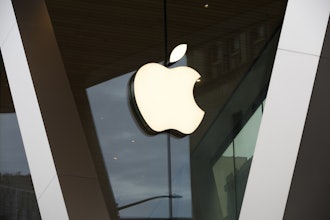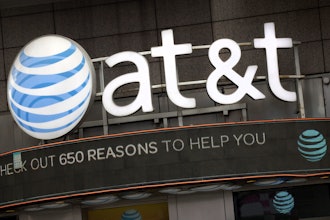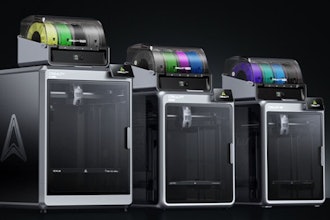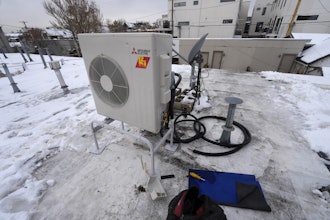
SAN FRANCISCO (AP) — Salesforce founder Marc Benioff oversees a $130 billion software empire from a 62-story skyscraper that towers above everything else in San Francisco. But he sits uneasily in his lofty perch because of a worsening economic divide on the streets down below, where the lavish pay doled out to tech workers like his are pricing many people out of affordable housing.
So he's urging fellow CEOs to help fix a "train wreck" of inequality his industry helped create. He wants them to take a stand on homelessness, along with other polarizing issues such as gay rights, climate change and gun control, to fill what he considers a leadership void that is paralyzing government in times of crisis.
Benioff blames much of society's current troubles on "CEOs who have been asleep at the wheel."
In a forthcoming book, "Trailblazer," due out Oct. 15, Benioff calls on activist CEOs to lead a revolution that puts the welfare of people and the planet ahead of profits.
"We are at a point where CEOs recognize that they just can't be for their shareholders," Benioff said in an interview. "They have to be for all their stakeholders, whether it's for their schools, whether it's for the environment, whether it's for the fundamental equality for every human being."
But skeptics wonder if his brash call for action is just another exercise in self-promotional showmanship he honed under his former boss, Oracle's flamboyant founder, Larry Ellison.
Another nagging question: Should a billionaire who rode technology to wealth and fame be trusted to help fix the problems his industry has exacerbated?
Critics contend that's a bad idea, particularly as CEOs become ever more isolated economically from the rest of society. Even at a booming tech company such as Salesforce, a worker making the average annual income of $152,000 would need nearly two centuries to match Benioff's $28.4 million pay package last year.
With a fortune estimated at $6 billion, Benioff lives in a mansion looking out on the Golden Gate Bridge and owns a five-acre compound on Hawaii's Big Island, where he says he can clear his mind while swimming with dolphins and whales. He bought Time magazine last year for $190 million and has his name on children's hospitals, a legacy of the more than $300 million that Benioff and his wife, Lynne, have donated to those institutions.
Relying on the privileged classes to set the social agenda during divisive times harkens back to the colonialism that the U.S. revolted against in 1776, warned Chiara Cordelli, a political science professor at the University of Chicago.
"Even if they are very well intentioned, they are so powerful it becomes a question of whether they should have this kind of voice," Cordelli said. "The more they do the work of government by themselves, the more reasons we will have to wonder whether we should trust government."
Benioff also has alienated other prominent tech executives with his sometimes-blunt criticism directed at tech companies that focus on consumer services, a mass market that is far outside of Salesforce's realm.
Salesforce's niche is making software that manages customer relationships for businesses and government agencies. Consequently, the company is insulated from the intense scrutiny facing the likes of Google, Facebook, Amazon and Apple over addictive products that peer into people's lives while promoting lies, prejudice and violence.
Benioff's fans insist he genuinely wants to steer CEOs in a new direction.
"Marc's heart leads his head," said California Gov. Gavin Newsom, who befriended Benioff about 15 years ago while Newsom was San Francisco's mayor. "You could almost anticipate he'll be the first on an issue."
And people tend to follow Benioff, as though he's a rock star, said Metallica drummer Lars Ulrich, a rock star himself.
"He has this very organic magnetism," said Ulrich, who has been friends with Benioff since they met at a dinner party about a decade ago. "I think a lot of tech CEOs almost look to him as a spiritual leader."
___
Like a lot of Silicon Valley billionaires, Benioff, 55, started out as a prototypical geek.
He began taking apart and reassembling his family's telephone when he was 4 and spent most of his teenage years learning to program computers. He earned more than $5,000 from video games he created while in high school.
Unlike many other programming prodigies, though, Benioff finished college, earning a bachelor's degree in business from the University of Southern California. He's also deeply rooted in Silicon Valley and San Francisco, where his family has lived since his paternal great-grandfather immigrated in the late 19th century from Kiev, then part of Russia.
He credits his father, Russell, who owned a chain of dress shops, for teaching him about the value of hard work. He credits his maternal grandfather, Marvin Lewis, who served on San Francisco's board of supervisors, for teaching him about civic service. As a successful lawyer, Lewis was wealthy enough to pass out $20 bills to needy strangers.
After making his first few million dollars as a rising star at the software company Oracle, Benioff felt unfulfilled and took a sabbatical, with Ellison's blessing. That led him on a spiritual journey to India, retracing a path taken by Steve Jobs, whom he had befriended in 1984 while working as an intern at Apple. Benioff left with his friend, venture capitalist Arjun Gupta, in 1996 and met a guru. Mata Amritanandamayi, known as the "hugging saint," urged the two men to always remember to do something for others.
"From that very early stage, he was very spiritual and his leadership was very oriented toward values," Gupta said. "And he was already thinking about how business cannot just be business, but business can be a platform for good."
Benioff's experience in India left a deep impression. So much so that when he started Salesforce in 1999, he took the then-unheard of step of earmarking 1% of the company's products, stock and labor for charity. Salesforce says it has donated more than $285 million and 4 million hours of employee time to 42,000 nonprofits and schools. About 8,500 other companies, including Google, have adopted similar philanthropic arms since then.
It wasn't until 2015, though, that Benioff stepped beyond philanthropy into social activism. He led a charge against then-Indiana Gov. Mike Pence over a law that allowed businesses to cite religion as a legal defense against LGBT discrimination claims. As other companies and groups joined Benioff's threats to curb operations and travel in the state, Pence and Indiana's legislature softened the law.
"I had a lot of fear before I took that action in Indiana," Benioff said. "CEOs can get frozen in fear. We are no different from anybody else. But you have to find the courage of your convictions."
Since then, Benioff has spoken out against Georgia and North Carolina for passing laws that would allow LGBT discrimination. PayPal CEO Dan Schulman followed suit and canceled plans for an operations center in North Carolina.
Benioff has also been outspoken on the need for a national privacy law to prevent technology from digging deeper into people's lives. He has been especially critical of Facebook, which he has derided as a pox on society akin to cancer-causing cigarettes.
And last year, he feuded publicly with Twitter CEO Jack Dorsey over a payroll tax on San Francisco companies to raise money for homeless programs. Benioff campaigned for the tax, even though Salesforce is San Francisco's biggest employer. Dorsey opposed it, along with San Francisco Mayor London Breed.
___
Besides seeking higher taxes, Benioff recently decided to stop selling its software to retailers that sell military-style rifles in their stores.
All of this is costing Salesforce money and lowering profits — a financial sacrifice that Benioff shouldn't be making as CEO, said Justin Danhof of the Free Enterprise Project, a shareholder activist group with a conservative bent.
"He is using the economic power of Salesforce to advance his cultural position and advance his world view with impunity," Danhof said. "If you are looking at it as an investor, he is literally giving away money to advance his social agenda."
Danhof derided Benioff as "a social engineer acting as a CEO."
Even Bill Gates questions whether corporate leaders ought to be more than stewards of capitalism. Gates, who stepped down as Microsoft CEO nearly 20 years ago to concentrate on giving away a fortune now worth $105 billion, said such activism could make the workplace uncomfortable for those who disagree.
"Being an activist CEO, that may have limits because you may want to employ people from multiple political parties," Gates said in an interview.
Yet there are signs that the job of CEOs is extending beyond its traditional focus on increasing corporate profits and stock prices.
The Business Roundtable, a group representing corporate America's CEOs, recently released principles emphasizing the need to start thinking about society at large. After a wave of mass shootings, Walmart CEO Doug McMillon took a stand for stricter gun control by curbing ammunition sales in his stores. And 145 CEOs, including the leaders of Twitter and Yelp, called on Congress to pass tougher background checks on gun purchases and enable courts to remove firearms from people flagged as potential threats.
Yelp CEO Jeremy Stoppelman credits Benioff, whom he views as a "Papa Bear," for encouraging him to take a stand. "He has been a leading voice in the idea that CEOs don't have to play neutral," Stoppelman said.
Benioff's willingness to step out on a limb is one of the reasons Newsom asked Benioff to be his daughter's godfather.
"You want to give a damn," Newsom said. "You want to walk down paths others aren't willing to walk and, you know, you want to be of consequence in life."
Although Benioff named a co-CEO last year to free up time to do even more outside Salesforce, Benioff insists on pushing for change as a CEO activist rather than running for political office.
"It's a huge platform to inspire people to do the right thing," Benioff said. "That is all we can do, while also enjoying every moment of life."






















